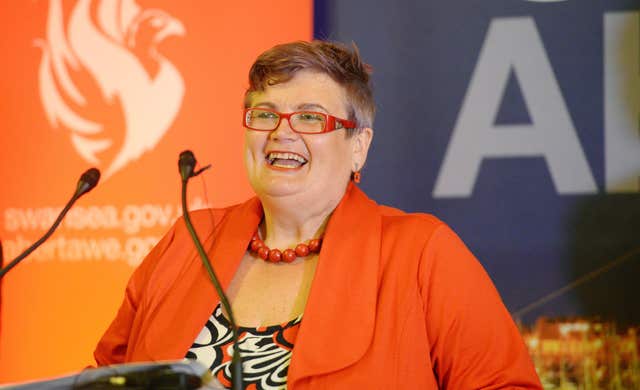
Football must brace for a “significant impact” to its finances if gambling advertising is restricted or banned, an industry boss has said.
The Government is gathering evidence as part of its review of the 2005 Gambling Act, and Sports Minister Nigel Huddleston said last year action would be taken if there is “evidence of harm” caused by betting sponsorship and advertising.
Neil Banbury, the UK general manager of the Kindred group which includes 32Red which is the shirt sponsor for Derby, Middlesbrough, Preston and Scottish giants Rangers, believes a sport already badly affected by the coronavirus pandemic would suffer greatly if advertising and sponsorship was outlawed.
LIVE: @HuddlestonNigel addresses the @HouseOfCommons on gambling https://t.co/ZbEc2h5FZr#GamblingActReview
— DCMS (@DCMS) December 8, 2020
“Especially in the Football League, the sponsors and principal partnerships that are there, that’s a big part of a club’s commercial income,” he said.
“Clearly, there are other industries that can get involved but there’s also a price point at which these sponsorship deals get done. Ultimately, if the buyers in that market gets heavily restricted then the price will go down.
“So clubs will be facing reduced income streams at a time where they’ve got plenty of income stream challenges outside of the sponsorship, world so there’s potential for significant impact.”
He did suggest that there could be scope to legislate against companies which advertise within English football but have no UK customer base, such as those based in the Far East.
“The vast majority of money which is spent in the Premier League on the shirt front is coming from businesses that have no interest in the UK customer and that, in the Premier League income terms, feels like an area where we might find some moderation to get this relationship to a better point,” he said.
“In reality you should have either a UK customer base or serious intentions to develop a UK customer base if you’re advertising within UK football.
“To some extent we would welcome some intervention or some changing in the rules. There should be a much higher bar for being able to get involved in such a visible property within the UK.
“The vast majority of brands sponsoring the Premier League don’t have a UK business, have no interest in UK consumers. That has created the toxicity around the debate when actually what we should be talking about is a high bar to get involved.”
Banbury says shirt sponsorship is vital to promoting responsible gambling and points out that all 32Red logos this season include slogans promoting that idea.
Kindred has opened its books and estimates that only four per cent of its revenue is derived from what it terms ‘high-risk’ gamblers, those who its algorithms indicate may be displaying addictive behaviours.
Its target is to reduce that to zero by 2023 and instead earn its income from “sustainable” and sensible gambling. Kindred will submit the evidence it has gathered to the Government review.
A study published last week led by academics at Oxford and Warwick universities found individuals were a third more likely to miss a mortgage payment even if they spent just 3.6 per cent of income on gambling, with this likelihood escalating rapidly the more someone gambled.
Gambling research: a new study from @DSPI_Oxford uses banking data to show that the ‘fun’ can lead to unemployment, ill health and even death – including a 37% increase in mortality. Read more >> https://t.co/XktoXDL9YL
— University of Oxford (@UniofOxford) February 5, 2021
It also found substantially increased mortality rates at the highest levels of gambling. A person gambling 30 per cent of their overall monthly spend was a 37 per cent more likely to die within five years than a non-gambler while even at 10 per cent of spend, there was a 12 per cent increased risk of death in the same period.
Banbury said Kindred’s early detection systems allow them to interact with customers acting in ways perceived to be risky, and over three-quarters of those alter their behaviour on the back of that interaction.
However, the industry still does not have the ability to impose a ban on a customer which would extend across the sector, meaning that people must be relied upon to self-exclude using services such as GamStop.

Carolyn Harris, the Labour MP who chairs the Gambling Related Harm All Party Parliamentary Group, has previously told PA the appearance of betting company logos on shirts “normalises” gambling to children.
“It’s subliminal isn’t it? Even though you might have a whistle-to-whistle ban, you still get logos around the stadium, you see it on the shirts continually,” she said.
“From a very, very early age we’ve normalised the association between football and gambling. This is where we get this problem in later life.
“Young people grow up believing to become involved in gambling is completely normal without knowing anything about the consequences of when it crosses that line.”
The Government’s call for evidence runs until the end of March.


Comments: Our rules
We want our comments to be a lively and valuable part of our community - a place where readers can debate and engage with the most important local issues. The ability to comment on our stories is a privilege, not a right, however, and that privilege may be withdrawn if it is abused or misused.
Please report any comments that break our rules.
Read the rules here